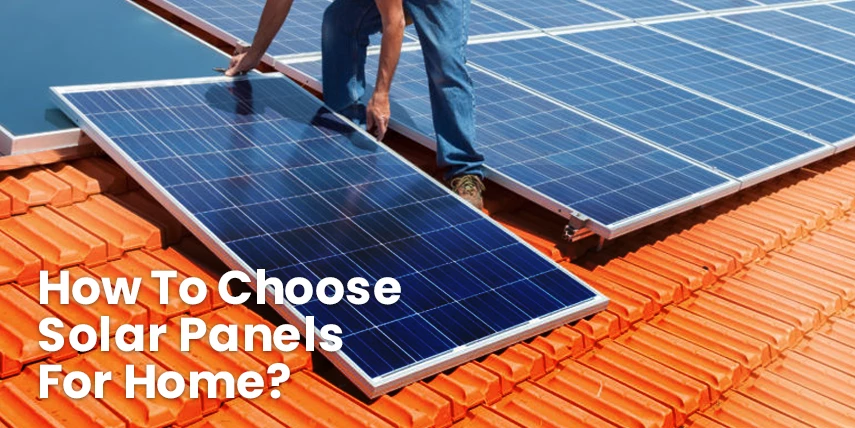

Sep 06, 2023
449
Demand for solar panels in Pakistan has increased dramatically following electricity inflation. Pakistan's rising solar panel demand is opening up new business and entrepreneurial opportunities. A lot of Pakistani businesses are engaged in the creation, setup, and maintenance of solar panels. They are offering Solar panels for sale in order to help people cut back on their electricity bills. Furthermore, the solar energy sector is anticipated to expand quickly in the years to come. Demand is also being fueled by people's growing understanding of solar energy's positive environmental effects. A clean, renewable energy source that does not release greenhouse gases is solar energy. The significance of this is growing as Pakistan deals with the effects of climate change.
Here is a quick look at some factors, that are encouraging the use of Solar panels in Pakistan:
By 2025, the Pakistani government hopes to have 20% of its electricity come from renewable sources. The use of solar energy is thought to be crucial to achieving this goal. To encourage the use of solar energy, the government has provided a number of incentives, including tax breaks and subsidies.
How to choose solar panels for home?

There are a few considerations you should make if you are thinking about installing solar panels in Pakistan. You must first confirm that your roof can accommodate solar panels. The solar panels must have enough room on the roof and should face south. Additionally, you must confirm that solar panels can be used with your electrical system. You can get assistance from a number of businesses in Pakistan with solar panel installation. They can examine your electrical system and roof to determine which solar panels would be best for you. Additionally, they are able to connect the solar panels to your electrical system and install them. Depending on the size of the system and the kind of solar panels you select, Solar panel prices in Pakistan can vary anywhere from $2,000 to over $10,000. Solar panels are becoming more affordable, and the money you save on your electricity bill over time may be enough to pay for the system outright.
Here are some factors to consider while wondering how to choose solar panels size:
Your energy needs:Identifying the amount of energy you require is the first step.Examining your previous electricity bills will help you with this..
The amount of sunlight your roof receives: The amount of sunlight your roof receives will affect the amount of solar energy you can generate.To determine how much solar energy your roof can store, use a solar calculator.
How big is your roof:The number of solar panels you can install will also depend on the size of your roof. You need to make sure that there is enough space on your roof for the solar panels.
The type of solar panels: There are two main types of solar panels: monocrystalline and polycrystalline. Monocrystalline panels are more efficient than polycrystalline panels, but they are also more expensive.Your financial plan Solar panels range in price according to their type, size, and efficiency. For your solar panel system, you need to set a budget.
Electricity inflation rates in Pakistan 2023
In Pakistan, the inflation rate for electricity is anticipated to be high in 2023. According to the National Electric Power Regulatory Authority (NEPRA), the average electricity tariff in Pakistan is expected to increase by 20% in the fiscal year 2023-24. This is brought on by the following factors:
The rising price of fuel
As a result, the power generation companies came under pressure and were compelled to pass along the higher costs to customers. The main fuel used to generate electricity in Pakistan is natural gas. Due to global factors like the Russia-Ukraine war, the price of natural gas has been increasing.
The depreciation of the Pakistani rupee
Recent years have seen a decline in the value of the Pakistani rupee relative to the US dollar. The cost of importing fuel and machinery has increased for the power generation companies as a result. In the last five years, the Pakistani rupee's value against the US dollar has decreased by about half. This has increased the cost of importing fuel and equipment for the companies that produce electricity, which has also led to an increase in the price of electricity.
The government's subsidy on electricity
The government offers consumers an electricity subsidy. The power generation companies have been under pressure as a result of the subsidy's recent reduction. In order to lower its fiscal deficit, the government has been spending less money on subsidizing electricity. Power generation companies have been under pressure as a result, and they have had to raise prices to cover their expenses. Consumers are severely impacted by the increase in electricity prices, particularly those who are lower-income. This is one of the prime reasons, why there is a surge in the demand for solar panels in Pakistan. The government has made a number of announcements to lessen the effects of the tariff increase, such as giving low-income households cash subsidies. However, these measures have been criticized for being inadequate. The Pakistani government must keep a close eye on these variables and take action to lessen their impact on the rate of electricity inflation. The government can help to control electricity inflation rates by taking actions to lower fuel costs, boost the efficiency of the power sector, and manage electricity demand.
The Increased Use of Solar Panels in Pakistan in 2023
Electricity is produced by solar panels and used in both homes and businesses. They might be less dependent on the grid as a result, and their energy costs might go down. In addition, massive solar farms are being constructed to produce electricity. These fs can assist in supplying Pakistan's rising demand for electricity. They are also employed in off-grid settings, such as isolated locales without grid access. Even in remote areas, this can give people access to electricity. Solar panels are being used to pump water for irrigation and other purposes, which will help increase agricultural productivity and lessen water shortages as Pakistan's electricity inflation continues to soar. In some Pakistani cities, street lights are powered by solar panels, which has a significant impact on lowering the price of electricity and raising street safety.
